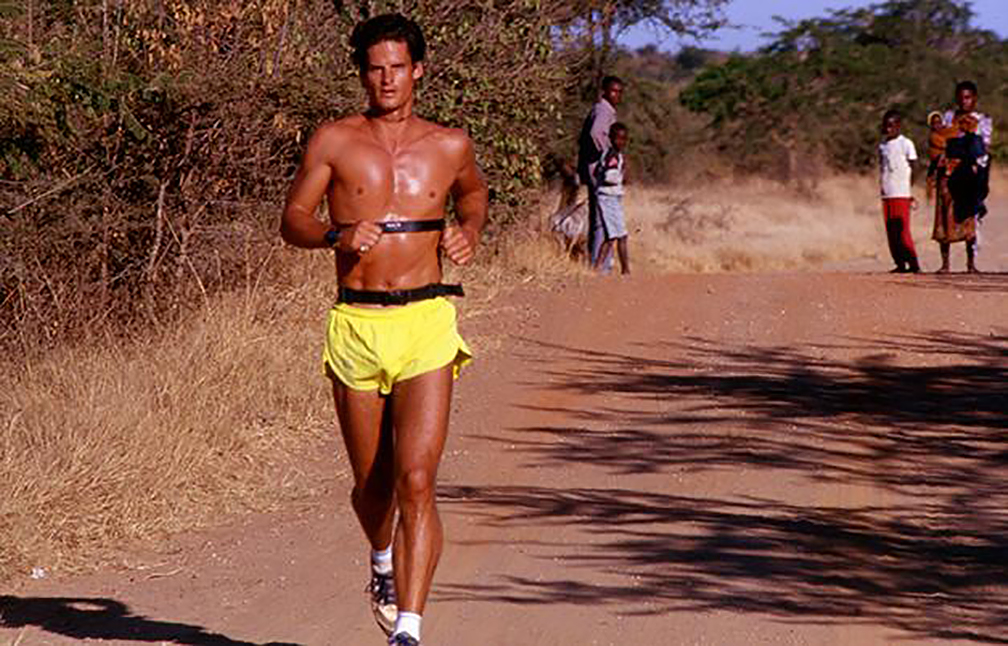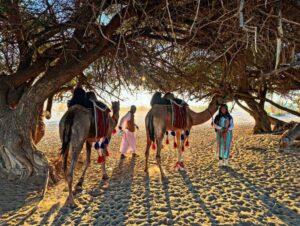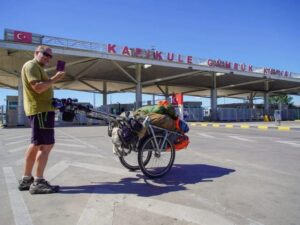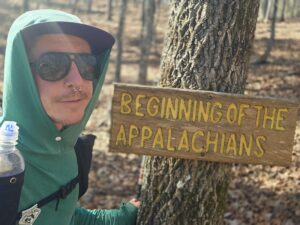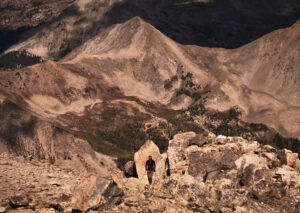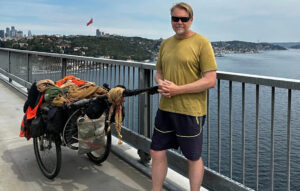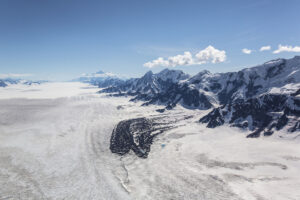Nicholas Bourne, a British runner who ran the length of Africa 26 years ago, has dismissed the controversy over “Hardest Geezer” Russell Cook. Bourne would like to see Cook celebrated rather than embroiled in a debate over who was first.
Cook, 27, arrived in Tunisia on Sunday after running from the southernmost to the northernmost tip of Africa. On Instagram, the flamboyant runner with the scraggly red beard called himself “the first person to run the full length of Africa.”
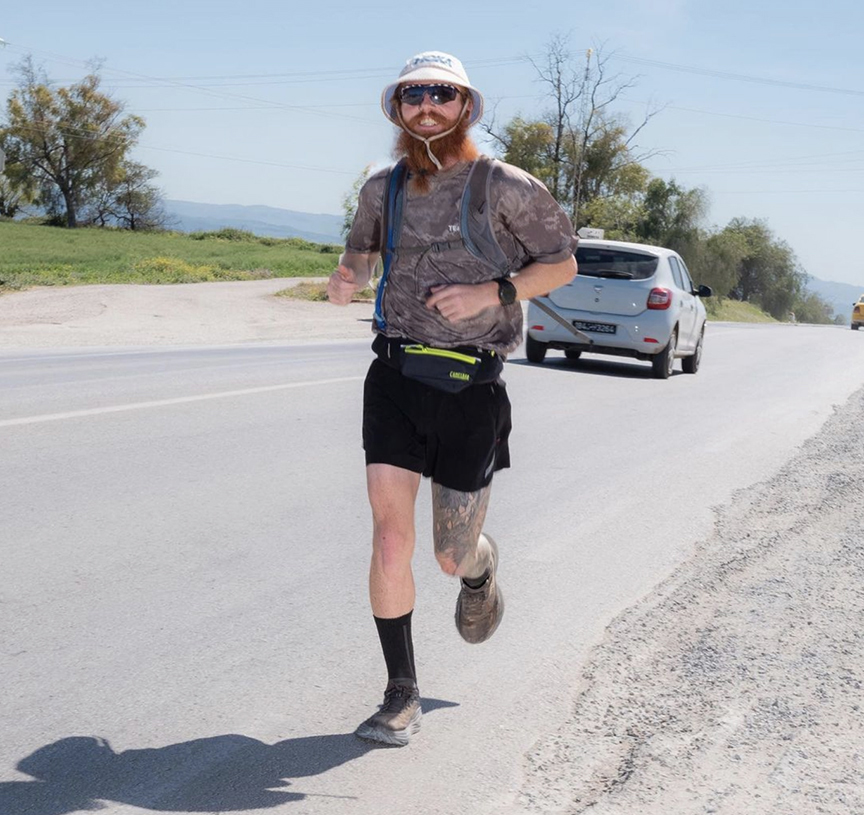
Russ Cook, above, finished his Trans-Africa run last Sunday, but his claim that he is the first to do it has been controversial. Photo: Russ Cook/Instagram
The claim has caused controversy. As he drew near the finish, the World Runners Association (WRA) released a statement saying a Danish man named Jesper Olsen ran from Egypt to South Africa from 2008-2012.
The WRA ratifies around-the-world runs by examining logbooks, data, and GPS to make sure claimants are genuine. It also defines continental crossings. By its standards, ocean to ocean, with a minimum distance of 3,000km, counts as a continental crossing.
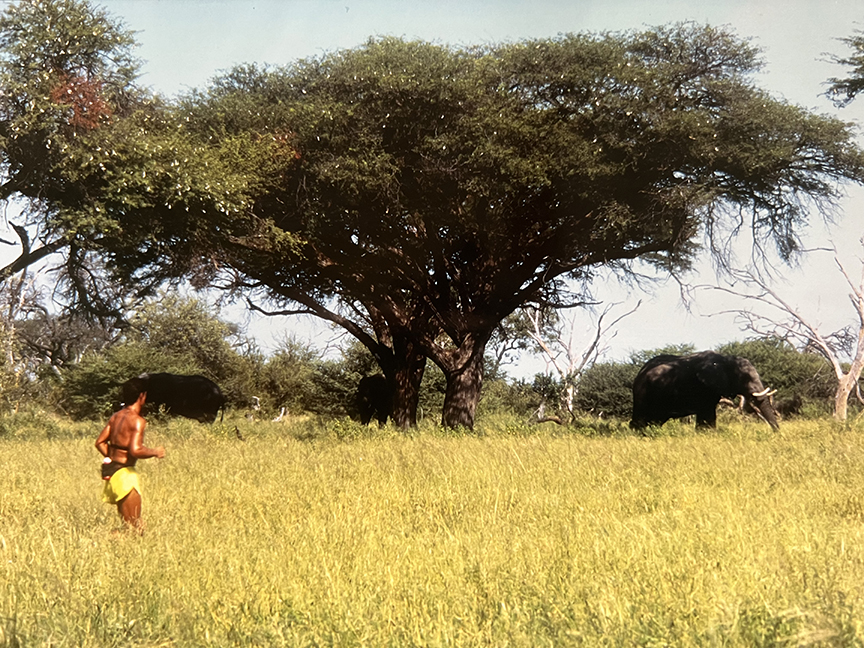
In an era before social media, Bourne runs past elephants in Botswana, in 1998. Photo: Nicholas Bourne
Definition dispute
The debate centers around what constitutes the length of Africa.
Some say the length of a continent is a straight line as the crow flies along its longitude or latitude. In Africa, that’s 8,000km on a north-south axis.
But Cook’s team defines the “full length” as covering any route between the southern and northern extremes. A huge following defends this common-sense definition.
To add further confusion about who was first, it emerged that another man had run from South Africa to Egypt and was recognized by Guinness World Records. In 1998, Nicholas Bourne, then 28, ran for 10 months and finished by the pyramids in Cairo.
The WRA is preparing a new statement recognizing Bourne as the first. But Bourne himself thinks the controversy is overblown.
“The term ‘storm in a teacup’ springs to mind,” Bourne told ExplorersWeb. “My feelings are congratulations to Russ because what he’s done is absolutely phenomenal. To run that distance and in that time, I have a very good understanding of how hard and difficult it is.”
He believes there wouldn’t be this debate if Russ Cook had just claimed that he was the first to run from the southernmost tip to the northernmost tip of Africa, but that is beside the point.
“It’s so difficult with all the things that get thrown at you,” said Bourne, a former model who now runs a sports management agency. “Russell had some incidents of being held up by people with machetes and running through war zones. I totally understand what he’s been through.”
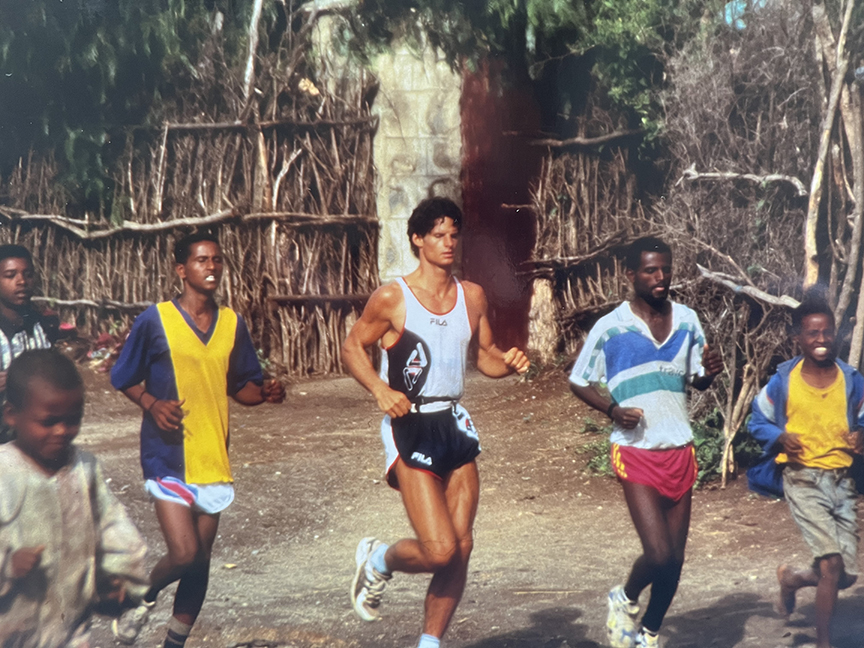
Bourne and friends during his 1998 Africa run. Photo: Nicholas Bourne
What’s important
Bourne wants people to focus on what’s important, such as the $1 million that Cook raised for charity.
The debate has stirred good memories for Bourne. He’s gone through old pictures and reminisced about all the people he met during the adventure.
Bourne went back and cycled the same route in 2015. What struck him most was how the cities had grown since his run in 1998, especially in Kenya.
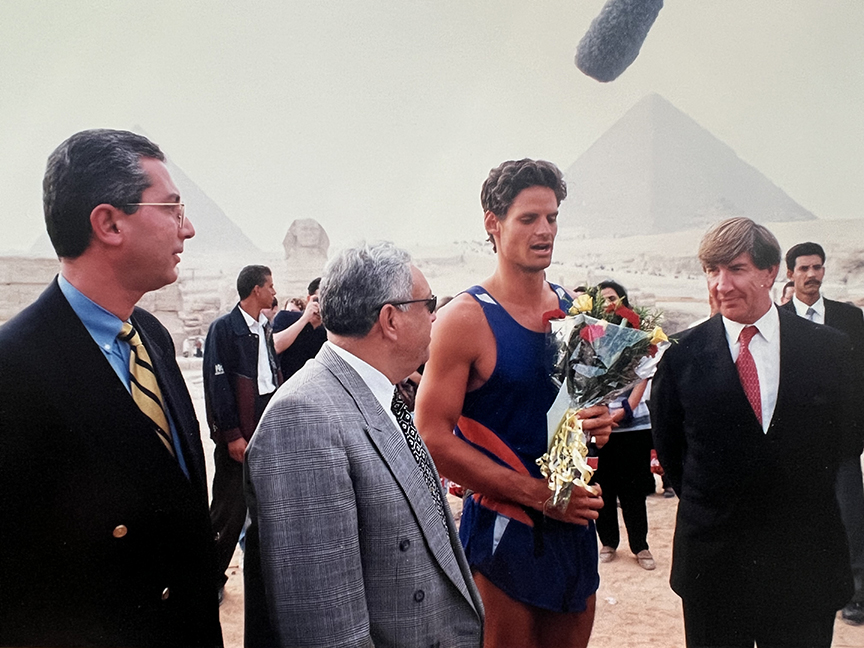
Nicholas Bourne arrives in Cairo on Dec. 5, 1998. Photo: Nicholas Bourne
What does the WRA say?
Marie Leautey is a member of the WRA and ran around the world in 2022. She also commends Cook’s achievement. But she says he is not the first in the WRA’s eyes.
She compares it to running across America. Many runners do different routes, some from San Francisco to New York, others from Los Angeles to Miami. They are all considered running across America.
“If I said I have run from Seattle to New York, it would be self-evident that I have run, in effect, a transcontinental length of the continent,” she said. “And people would not go into the details of where the crow flies, or the length of, the lines of latitude, etc.
“I would struggle to understand why this [would be any different in Africa],” she added. “Because the north-south axis of Africa has been run so few times (three as far as I now know), it would be easy and deceitful to [claim a] ‘first in history’ for every route a runner takes.”
